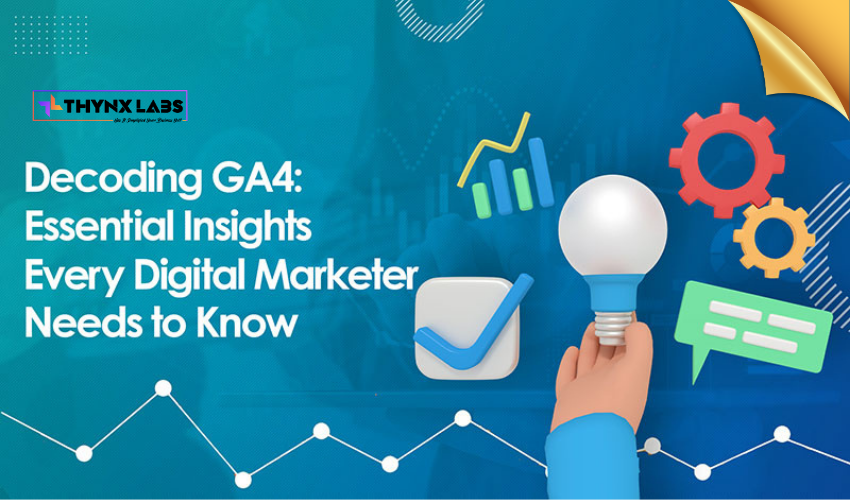A Detailed Guide to Budgeting for Digital Marketing
In the fast-paced digital landscape, effective marketing is crucial for business success. As more businesses shift their focus towards online platforms, understanding how to budget for digital marketing becomes paramount. This detailed guide will walk you through the intricacies of creating a comprehensive digital marketing budget, ensuring your marketing efforts are both impactful and cost-effective.
Introduction
Understanding the Importance of Digital Marketing
Digital marketing has become the cornerstone of modern business promotion. With billions of people online, it offers unparalleled access to potential customers. However, to make the most of this vast landscape, you need a well-structured budget that aligns with your goals and objectives.
The Role of Budgeting in Marketing Success
Budgeting is not just about setting aside money for advertising; it's about strategically allocating resources to maximize returns. This guide will show you how to create a digital marketing budget that optimizes your spending and ensures a high return on investment (ROI).
Setting Clear Goals
Defining Your Objectives
Before you can start budgeting, you need to define your marketing objectives. Are you looking to increase brand awareness, generate leads, or boost sales? Clearly articulated goals will guide your budgeting decisions.
Identifying Key Performance Indicators (KPIs)
To measure the success of your digital marketing campaigns, you must establish key performance indicators. These metrics could include website traffic, conversion rates, or social media engagement. Identifying KPIs will help you track progress effectively.
In the next sections, we'll delve deeper into the intricacies of budgeting for digital marketing, including audience analysis, channel selection, budget allocation, content strategy, and much more.
Audience Analysis
Creating a deep understanding of your target audience is essential for effective digital marketing. By creating detailed buyer personas and analyzing audience behavior, you can tailor your campaigns to resonate with your potential customers.
Choosing the Right Channels
Different marketing channels offer unique advantages. This section will explore various digital marketing channels, from search engine optimization (SEO) and pay-per-click (PPC) advertising to social media and email marketing. Choosing the right channels aligned with your goals is pivotal.
Budget Allocation
Determining the appropriate budget size for your digital marketing efforts is a crucial step. We'll discuss factors influencing budget size and how to allocate your budget across different channels to achieve the best results.
Content Strategy
Content is king in the digital world. Crafting engaging and relevant content and planning its distribution is essential for capturing your audience's attention and driving conversions.
Search Engine Optimization (SEO)
Achieving high organic search visibility is a long-term strategy that requires careful budgeting. We'll explore the essentials of SEO and how to allocate your budget for optimal results.
Pay-Per-Click (PPC) Advertising
PPC advertising offers immediate visibility, but it can be costly if not managed properly. Learn how to run effective PPC campaigns while keeping costs in check.
Social Media Marketing
Leverage the power of social media platforms to connect with your audience. We'll discuss strategies for organic and paid social campaigns and how to budget for them.
Email Marketing
Building and nurturing your email list is an invaluable asset. Discover how to budget for email marketing campaigns that drive engagement and conversions.
Analytics and Measurement
To ensure your budget is well-spent, you must track ROI and campaign performance. We'll explore the tools and techniques to make data-driven decisions.
Adjusting Your Budget
Market dynamics change, and your budget should adapt accordingly. Learn how to make strategic adjustments to your budget to stay ahead in a competitive landscape.
Competitor Analysis
Understanding your competitors' strategies can provide valuable insights. We'll discuss how to conduct competitor analysis and use it to your advantage.
Staying Updated
The digital marketing landscape evolves rapidly. Staying updated with industry trends and investing in training and tools is essential for long-term success.
Conclusion
In conclusion, budgeting for digital marketing is a meticulous process that requires careful planning and analysis. By following the steps outlined in this guide, you can create a budget that maximizes the impact of your marketing efforts and helps you achieve your business goals.
FAQs
Q.1 What is the ideal budget size for digital marketing?
The ideal budget size depends on your specific goals and industry. It's essential to assess your objectives and allocate a budget accordingly.
Q.2 How can I track the ROI of my digital marketing campaigns?
Tracking ROI involves measuring key performance indicators (KPIs) such as conversion rates, click-through rates, and revenue generated from marketing efforts.
Q.3 Is SEO a long-term strategy, and how should I budget for it?
Yes, SEO is a long-term strategy. Budget for it by allocating resources for keyword research, content creation, and ongoing optimization efforts.
Q.4 What are the key factors to consider when choosing digital marketing channels?
Factors to consider include your target audience, campaign objectives, and the channels that best reach your audience.
Q.5 How often should I adjust my digital marketing budget?
You should regularly review and adjust your budget to adapt to changing market conditions and ensure optimal performance.


